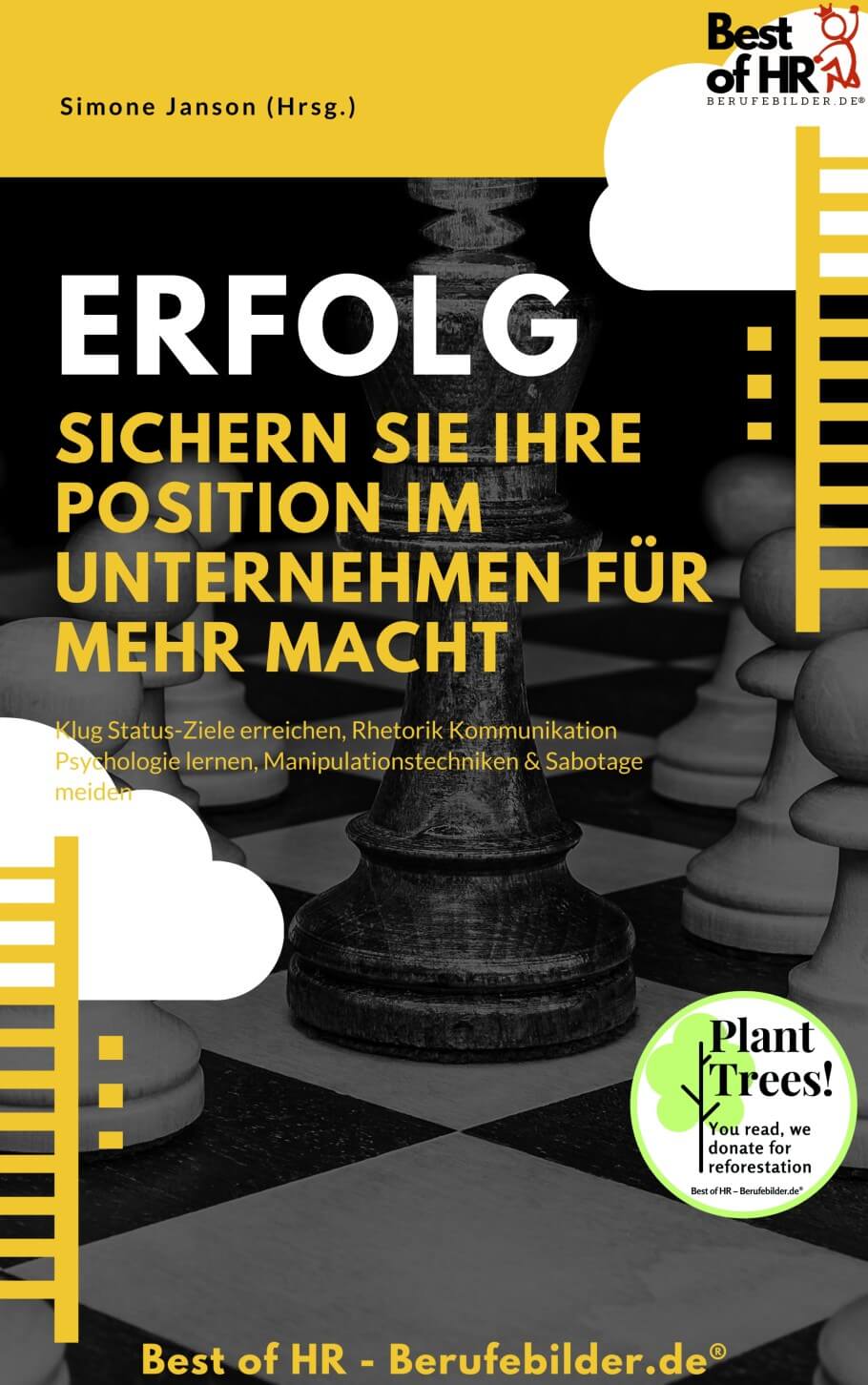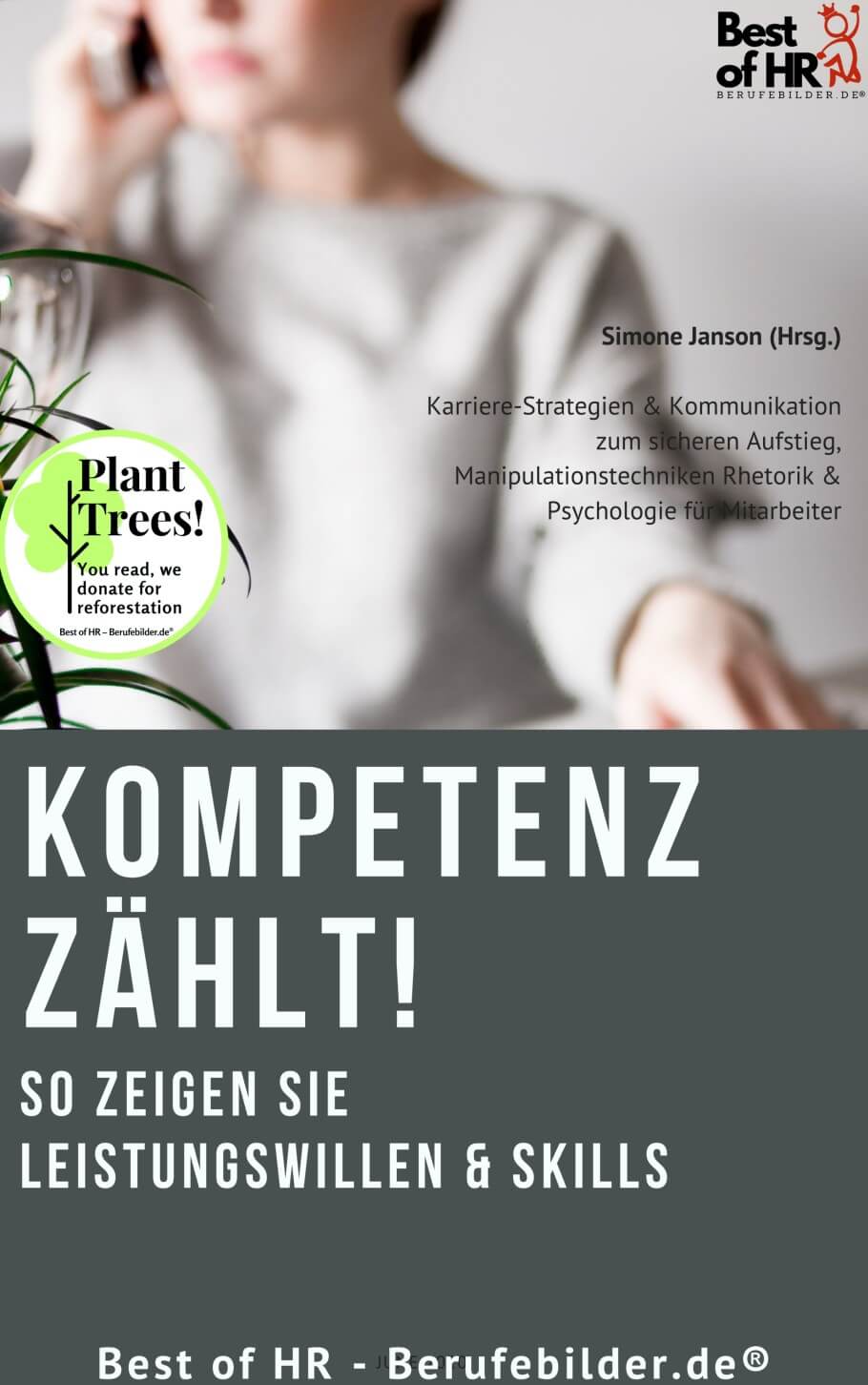For their successful, good life Information you really need: Government-funded publisher, awarded the Global Business Award as Publisher of the Year: Books, Shops, data-driven AI-Services. Print and online publications as well as the latest technology go hand in hand - with over 20 years of experience, partners like this Federal Ministry of Education, customers like Samsung, DELL, Telekom or universities. behind it Simone Janson, referenced in ARD, FAZ, ZEIT, WELT, Wikipedia.
Disclosure & Copyrights: Image material created as part of a free collaboration with Shutterstock. Text originally from: “What you don’t learn at Harvard Business School” (2019), published by Münchener Verlagsgruppe (MVG), reprinted with the kind permission of the publisher.
Knowledge of human nature in everyday business: What you won't learn at Harvard
By Mark McCormack (More) • Last updated on October 25.09.2023, XNUMX • First published on 13.10.2020/XNUMX/XNUMX • So far 4453 readers, 2685 social media shares Likes & Reviews (5 / 5) • Read & write comments
We are told that success in life depends on good grades and the right contacts. But that is only the half truth. Above all, it depends on knowledge of human nature and experience. And Harvard can't help either.

13
- A particularly valuable course of study?
- How to Get Experience: Learning by Observation
- Can a sure instinct be learned?
- What is an academic education good for?
- Knowledge of human nature: how power changes people
- How to get an idea of someone
- Use knowledge correctly
- Top books on the subject
- Read text as PDF
- Advice on success, goal achievement or marketing
- Book eCourse on Demand
- Skate eBook as desired
A particularly valuable course of study?
When I was still studying law at Yale, I was told that this course was for business Career just as valuable as studying business administration. Long later, after lecturing at both Harvard and other economics institutes, I came to the same conviction—although both disciplines have clear boundaries when it comes to the realities of business life. A degree in law or business administration is undoubtedly recommended as a stepping stone. But when Vocational Training, as part of an ongoing learning process, it represents at best a solid foundation and at worst a naïve form of presumption. What we learn in our universities is the realization that there is one thing they cannot teach us: the ups and downs, the ups and downs of everyday business.
Management practice includes autodidactic learning processes, whereby one's own reservoir of experience, if it is as large as mine, Things to Learn shorten, simplify and "sweeten" without a doubt. In the early 60's I started my own business with less than $500 to start with Company was founded, giving birth to a new industry – the sports management and sports marketing industry. Today it has become the International Management Group (IMG), a mammoth company with billions in revenue and branches all over the world Welt. But I'm probably better known as "the man to whom Arnold Palmer owes his millions." In reality, Arnold Palmer owes his millions to Arnold Palmer, although I'm sure he thinks I've been a big help in that.
How to Get Experience: Learning by Observation
The books on the subject (advertising)
Although the management of such famous sports stars as Jean-Claude Killy, Jackie Stewart, Bjorn Borg, Herschel Walker, Martina Navratilova, Chris Evert and many others of our numerous clients is very important to us, it is only a part of our group. Our television division produces hundreds of hours of programming around the world and sells it to audiences as diverse as Wimbledon, the National Soccer Team, the American Tennis and Golf Association, the International Ski Association, the College Sports Association and the Royal and Ancient Golf Club. Our business consulting department is used by more than fifty listed companies on an international level. We have personal financial advice and Planning adopted for hundreds of top managers.
We have three fashion centers and we work or have worked for a wide variety of clients, such as: B. for the Nobel Foundation, the Vatican and the Catholic Church of England; we are also serving as advisors to the Organizing Committee for televising the 1988 Winter Olympics in Calgary and the 1988 Summer Olympics in Seoul, Korea. In my more than twenty years of practice in business life I have, without wanting to be presumptuous, encountered every conceivable situation and type of business Personality got to know. I had to deal with the complex characters of sports greats and their spouses, parents, friends, neighbors and fans. I've dealt with statesmen and CEOs, international bankers and small-town lawyers, bureaucratic sports federations and autocratic company founders. I have been exposed to every phase and form of the entertainment, communications and leisure industries for sure at some point with every country in the world Shops completed.
What I do not know from my own experience, I have learned through observation. As a result of our business relationships too great Companies I have been a guest in the offices and boardrooms of countless companies all over the world. I had the opportunity to read them in »full SALE« – and could see why so many fail. I've probably got to know every conceivable corporate style, every cultural background, every theoretical and philosophical foundation - and found out why people so often »build on sand«. From these experiences and observations I have advice on sales techniques, negotiation, starting a business, how to start and run a company, Employees and leads personalities, plans one's career or enforces something, derived. However, I have to say that this categorical analysis is misleading because this book is primarily concerned with what I would like to call "healthy pragmatism" - the ability to make positive use of one's instincts, insights and cognitions, to use them to a specific Objective to be reached as quickly as possible, even if that means that you have to overcome some hurdles or use the »back door«.
Can a sure instinct be learned?
Can sensitivity in economic life really be »learned«? Maybe not quite, but what you can acquire are the results of practical thinking. Much of what I say or do at work is designed to give me a slight psychological advantage over others or to enable me to inspire others to perform at their best. That's what I mean by healthy pragmatism – namely applied knowledge of human nature. Whether it's closing a deal or asking for a raise, five thousand Seller to motivate or to have an interlocutor negotiate, to buy a new company or to fundamentally change an old one - every situation in business life is basically a situation in which it is primarily about interpersonal relationships. And only them Executives make successfullywho develop a keen sense for people and know what practical use they can derive from it.
To be fair, you don't learn at Harvard what you can't learn there: namely, a good knowledge of human nature and how to use it practically to achieve a specific goal. This is exactly what this book will teach you: how to better understand others and how to be understood better, and how to use both skills in any business situation or adapt it to suit the circumstances. Certain dispositions in business are, of course, situational. But whenever it was possible, ie when a clearly conscious action leads to a consequent more or less unconscious reaction, I have tried to analyze the facts for you. Based on my own experiences and observations, I can recommend many specific techniques that can be applied practically and lead to immediate, tangible results. A lot of advice is a little unconventional, not to make it different in principle, but because I believe that our dependence on the conventional Background – from traditional ones ideas and antiquated Methods – probably one of the big ones Problems for our Economy represents. Business leadership is the constant process of breaking out of the rigidity of existing systems, challenging conditioned reflexes and scratching the surface to reveal the core. Actually everyone is willing to work, but certain adverse ones circumstances prevent him. It is simply impossible today to write a realistic book without addressing this problem and its many variations.
What is an academic education good for?
Discounts for your success (advertising)!
Our economy needs them Innovation. There has always been a need to push ourselves to the limit, to measure ourselves against problems, but our business schools are - by necessity - doomed to teach the past. This not only perpetuates conventional thinking, but also slows down innovation. Someone once said that if Thomas Edison had gone to business school, we would still be reading by candlelight, albeit larger ones. My intention with this book was to fill some gaps - gaps between theoretical training and the healthy pragmatism that derives from the daily experience of running a business and leading people. Over the years we have hired many graduate executives from Harvard and other universities. In fact, I think that back in the days when I was more impressionable, that was one of my own conditioned reflexes: "If you have a problem, you need a business graduate!" Even as our company grew and ventured into areas where it to us confidence or lack of professional competence, I argued that they were the most suitable because of their academic training, our first steps into »uncharted territory«. In doing so, I realized that a university exam can often be a stumbling block in practice. A lot of the business graduates we hired back then were either incredibly naïve or victims of their professional training. This resulted in a kind of inability to learn about real life - that is, to properly assess people and situations - and a dangerous tendency to draw the wrong conclusions. To be fair, however, it must also be added that some of our business graduates have managed to adjust to reality quite well.
But, as I once did, believing that a college degree or a high IQ is inevitably coupled with a healthy dose of pragmatism has unfortunately all too often proved to be a fatal fallacy. A few years ago was at Harvard Business School conducted a case study on this issue. Even when formulating the Ask It turned out that the students had difficulties in finding the appropriate "theoretical box" in which to classify certain business situations. And whoever found it expected that the correct answer would come out of its own accord, as if at the touch of a button. Apparently, neither people nor problems fit into ready-made "templates," and trying to force them into them distorts perspectives. Two old friends met again by chance on the street after 25 years. The one who had been top of the class worked as an assistant manager in a bank in his hometown. The other who never because of his Intelligence had his own company and a big bank account. When his friend, the bank teller, asked him the secret of his success, he replied, "It's very simple. I have a product that I buy for two dollars and sell for five dollars. It's amazing what you can do with a profit of three dollars.” I have no prejudice against intellect, intelligence or, in this case, degrees, but they are no substitute for common sense, people skills, and sound pragmatism. I think the Harvard Business School has now come to this conclusion as well.
Knowledge of human nature: how power changes people
Let me start by telling two stories: one is about a – then still – presidential candidate, the other about a well-known golf pro. Although there are almost ten years between the two events, they belong in mine Eyes together. In 1963, at the International Golf Championships in Paris, I met Richard Nixon twice - first at the golf club when he came to our table and greeted Gary Player, and the second time a few days later at the Tour d'Argent when he chatted briefly with Arnold Palmer and Jack Nicklaus, who I was having dinner with. Nixon's remarks were certainly whimsical, but I particularly remember him using the same words both times, the same five or six sentences, as if he were talking to puppets instead of people, or a certain repertoire of standard phrases for the different categories of people he might meet or meet-a few phrases for a sports star, a few others for a captain of industry, and another "set" for a church official. The second story is about a golfer extraordinaire, Doug Sanders. Many initially thought that signing Doug was a mistake. He was indeed a bit of a gambler, rushing from appointment to appointment, getting into serious trouble more than once, and always ready to "go all out." Some felt he was too contradictory and wanted to know why we trusted him. Around Honestly to be - I trusted Doug Sanders more than anyone who asked me that question. But now to the real story.
Doug once participated in a golf tournament in Canada. He had made all the necessary preparations himself. I didn't know anything about it, and I probably never would have, because his earnest money was paid in cash. But about a week after the tournament, we received an envelope that contained neither a letter nor a note - just our percentages, in cash. I still remember these two incidents so well today because they show a fundamental aspect of knowing human nature: What someone says or does in a completely unimportant situation sometimes speaks "volumes" and often only reveals the true self. My chance acquaintance with Nixon was marked by a degree of insincerity and hypocrisy that I was to remember all too well ten years later when he was forced to resign. Nixon's fall is perhaps as much due to his insincerity as it was to the Watergate affair. Dishonest people are anathema to most; we instinctively distrust them and are certainly not thrilled that they decide the fate of our country decide. In the case of Doug Sanders, the signing fee for entering the golf tournament was hardly that Rede value. But to this day I can picture Doug going into his hotel room, pulling out a wad of bills, counting out our share, putting it in an envelope and addressing it to us. It was so typical that he couldn't have thought of anything else. Of course, some of us would prefer the future American president to be "strong in character" and the "shady" golfer "lacking character," but the facts clearly speak against it. But what does that have to do with business, you might ask? Very much!
How to get an idea of someone
In our profession it is not difficult to acquire a certain personality or an image that corresponds to the respective situation. Some people behave very differently when dealing with subordinates than with superiors or outsiders. But the original me, the true nature of a human being, is not a chameleon that adapts to the respective environment. In an ongoing relationship, sooner or later, consciously or unconsciously, you will become the true one Character Discover your business partner. At least you want to hear what he really has to say, not what he's trying to tell you; You want to be able to relate his actions or professional activities to his character in a broader sense. Whether I'm selling or buying, being hired (as part of my consulting work) or hiring myself, whether I'm negotiating a contract or responding to a client's wishes - I want to know who the other person is. I want to get to know the real you. At its core, every business situation is about human relationships, and the more and the faster I know about the person I'm dealing with, the more I can make a difference. One Opinions is not an answer Many people make judgments about others without knowing them personally, based solely on what they have heard or know about their company. They discard or even ignore their own perceptions unless they agree with their preconceived notions.
At IMG, we are often confronted with prejudices that affect our company. Our way of working is fairly transparent and a number of articles or TV shows dealing with the company profile or myself felt special emphasis on ours position of power in sports and having to characterize ourselves as tough, even ruthless, negotiators. Nine times out of ten, this image is an advantage for us. We are almost expected to »gamble big«, and this expectation makes it easier for us to »get a grip on the negotiating partner«. And if he then has to realize that we're actually quite approachable and reasonable people, we've already won. But there are also "tithes" who cling so doggedly to their preconceived notions that they completely misjudge the actual business situation or the employee of our company with whom they are dealing. He has made up his mind to be as tough as we are or to steel himself against our toughness, which means that a friendly "Nice to meet you" is already a covert threat. Apparently, because of his prejudices, he is no longer capable of really revealing insights. Developing people skills requires opening all your senses of reality and turning the insights you gain into tangible starting points that you can use to your own advantage. Dave DeBusschere, a former basketball star, was vice president of our television division for a number of years before joining the New York Knicks as general manager. Dave had to go through some frustrating negotiations with the head of an insurance company in Connecticut that he wanted to sponsor for one of our TV shows. The man seemed genuinely interested, but was so overwhelmed to deal with DeBusschere that he couldn't come to terms with that fact or his own suspicions. If the opportunity really was that great, he suggested, why hadn't an "ordinary" employee been assigned to sell it to him?
Use knowledge correctly
Dave Marr, former Professional Golfers' Association PGA champion, and I once spoke about some of the golfing greats we knew; In doing so, I think Dave laid down one of the most important basic rules of golf betting: "Never bet with someone you hit on the first tee who has a deep tan, a golf club with an iron head stack, and is stealing glances around." On really important takeaways one often only arrives at the true character of a person with the help of observation. In most business situations, there is more to see than meets the eye—namely, a wide range of dynamic personality traits at work beneath the surface. There is almost always an opportunity that allows you to peek behind the facade. Sometimes it's the things someone unconsciously says or does, or the way someone, e.g. B. in a specific question, avoids your gaze. But there are also behaviors that are neither simple nor unconscious, e.g. B. how someone formulates a certain thought. What is certain, however, is that there are key elements that lead to profound insights in abundance, available to anyone who develops an eye for them. But a surprisingly large number of executives seem oblivious to it. They are unable to see what is really going on around them. Either they're too busy hearing themselves talk, so they don't give the other one enough awareness give, or they focus exclusively on their own professional activities and do not notice what others are doing. I can't imagine anyone in business succeeding without a modicum of people skills. In our economy, perhaps more than in other areas, it is about granting every advantage, no matter how small
recognize and preserve. And all aspects of this process can be traced back to dealing with people: it is important to guide them, to give them something merchandiseto work with them and basically get them to do what you want them to. Without sufficient knowledge of human nature, you simply lack the necessary insight. Knowledge enables one Perspektivethat goes beyond the present. Imagine being able to make an exact forecast of how the economy will develop over the next ten years. Because of this information advantage, you would not only be significantly smarter, but also significantly more successful and wealthy. Good knowledge of human nature undoubtedly contributes to Future to see more clearly. A person's true self, their actual character, cannot adapt to different situations like a chameleon. It's totally consistent. Therefore, the better you know someone, the better you can penetrate their facade, the more accurately you can predict how he or she will act or react in a given situation. This knowledge can be invaluable to you. The modus operandi involved is similar to that of the "professionals" - the spiritualists and soothsayers who have been using the same "trick" to predict the future for centuries. Psychics try to gauge their clients by observing them closely - how they act, what they look like, what clothes they wear - and by asking them innocuous questions. With this information, they can "take a peek into the future" that actually yields exactly what the client wants to hear, based on the insights they have gained since then. A good fortune teller sometimes finds the most amazing things he has pieced together from tiny bits of information. Certain members of this "guild" would no doubt make excellent managers. On the other hand, I know many executives who wouldn't stand a chance as fortune tellers.
Top books on the subject
Read text as PDF
Acquire this text as a PDF (only for own use without passing it on according to Terms and conditions): Please send us one after purchase eMail with the desired title supportberufebilder.de, we will then send the PDF to you immediately. You can also purchase text series.
4,99€Buy
Advice on success, goal achievement or marketing
Do you have questions about careers, Recruiting, personal development or increasing reach? Our AI consultant will help you for 5 euros a month – free for book buyers. We offer special ones for other topics IT services
5,00€ / per month Book
Book eCourse on Demand
Up to 30 lessons with 4 learning tasks each + final lesson as a PDF download. Please send us one after purchase eMail with the desired title supportberufebilder.de. Alternatively, we would be happy to put your course together for you or offer you a personal, regular one eMail-Course - all further information!
29,99€Buy
Skate eBook as desired
If our store does not offer you your desired topic: We will be happy to put together a book according to your wishes and deliver it in a format of yours Choice. Please sign us after purchase supportberufebilder.de
79,99€Buy
Here writes for you
Mark McCormack is the founder and CEO of IMG.IMG is one of the largest American television producers, representatives and consultants for world-renowned institutions and events, especially in high-performance sports. All lyrics by Mark McCormack.



















Post a Comment